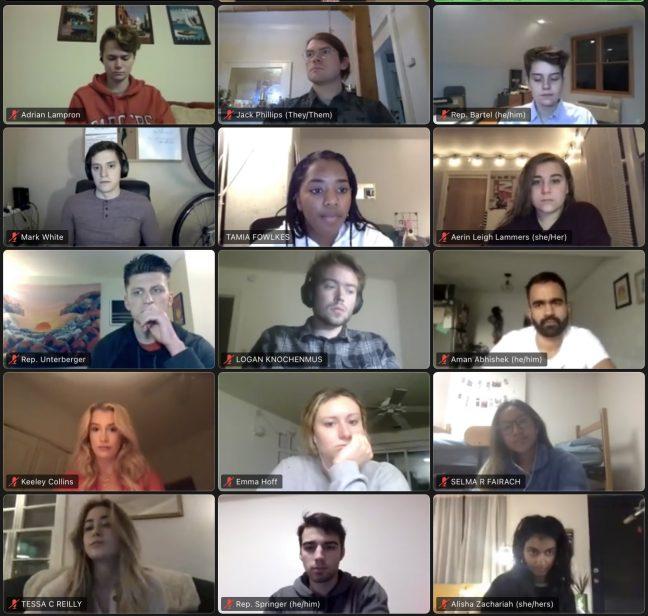The Associated Students of Madison unanimously passed the COVID-19 Student Relief Fund in addition to supporting a mental health first responder model and pass/fail grading policies.
Many University of Wisconsin students and members of the general public show support for the three special orders, specifically the COVID-19 Student Relief Fund. ASM waived the student requirement to speak at the forum and members of the community spoke at the open forum for over an hour.
UW student Reez Bailey spoke in favor of the COVID-19 relief program, advocating that ASM has the authority to spend the funds in question, while recognizing there are constraints on how ASM can spend money.
“The administration cannot deny that ASM is justified in attempting to pass this legislation,” Bailey said.
Bailey also said that though these funds are for the student’s benefit, there have been concerns about policies and whether or not this legislation is legally feasible.
Bailey challenged these claims and said the Student Tenant Union program was mentioned in the Governor’s Education Emergency Relief fund Supreme Court case.
“We’re talking about providing money for a program that will be operated by the Tenant Resource Center,” Bailey said. “There is a long-standing financial relationship between TRC and ASM. Furthermore, this is not the first time ASM has provided money to TRC for the purposes of keeping students in their homes.”
Some community members who spoke in the meeting criticized ASM, arguing they were not keeping student’s best interests in mind and committing a moral injustice by not allocating relief funds for students sooner.
Brooke Evans, former member and student of ASM, SSFC and UW, shared her experience of struggling with homelessness — even as an alumna.
“I am suffering so much so that I can’t afford housing because of my student loans. They very much keep me homeless. I no longer even have a credit card and I don’t have health insurance,” Evans said. “Please don’t sentence your peers to a life of debt.”
UW student Kaitlin Kons said the COVID-19 student relief fund was a “no-brainer” and there is a “moral injustice in dragging our feet.”
UW student Eliza Donnelly was also in support of relief fund legislation and spoke about the failure of the university as a whole to address COVID-related problems faced by students.
“It’s horrifying and has taken a toll on all aspects of life,” Donnelly said. “I feel extremely disappointed. I knew that the university failed to look out for [students].”
In an email statement to The Badger Herald, UW Spokesperson Meredith McGlone refuted claims made by Mitnick and other student leaders about their interpretation on the fund’s legality. ASM reps argued they can allocate the funds under segregated fee policy since it is not allocated directly to students but through a third party, the TRC.
McGlone said standard legal interpretation states if authority to delegate funds is not present, then the allocation is not authorized. Since the 820 segregated fee policy contains no language about delegating to third parties, McGlone said the legislation’s actions are not legally valid.
“[Policy 820] requires student government to follow all applicable laws and policies,” McGlone said in the statement. “ASM has no authority to modify 820 as it is a System policy and is only allowed to assess seg fees for things permitted under 820.”
ASM voted unanimously to support the COVID-19 Student Relief after the public comment concluded. The vote puts them at odds with the university’s stated opposition to the fund on the basis of legality issues.
The UW Caste Protection legislation was also introduced but not voted on during the meeting. This legislation would include caste-based oppression under the university’s Regent Policy Document 14-6, “Discrimination, Harassment, and Retaliation.”
The Second Semester Grading Policies legislation introduced during the meeting was passed by unanimous consent, calling for all undergraduate online classes to have “non-synchronous options” and “adjusted grading policies.”
The CAHOOTS Legislation requesting mutual aid for crowd control situations on State Street also passed with unanimous approval. The legislation also officially established ASM’s support to authorize the creation of a Crisis Response Team, which would in turn respond to mental health related calls for service on campus while simultaneously reducing law
enforcement response.
The council unanimously approved the ASM budget for the 2021 fiscal year.
The next ASM meeting will be held on Feb. 9 on Zoom at 7:00 p.m.


